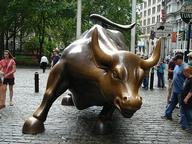Quiz Answer Key and Fun Facts
1. A sub-section of the London Stock Exchange is called AIM. What does this acronym stand for?
2. Why might an investor "short" a particular stock or share?
3. I have just instructed my stockbroker to sell one of my holdings using a "fill or kill" trade. What have I asked him to do?
4. I am fairly confident that a company I want to invest in will have a good year but just in case I'm wrong I want to "hedge" my risk. Which of the following combinations of manufacturing companies might be a good "hedging" strategy?
5. I am told by my pension adviser that my retirement fund has now been placed in an investment vehicle run by a professional institution, co-mingled with other investors' money and spread throughout various sectors of the investment market. The returns obtained will be totally dependent upon investment performance with no underlying guarantees. Which type of fund am I now invested in?
6. Speculation on which region's stock markets caused Nick Leeson to bring about the collapse of Barings Bank in 1995?
7. I need to raise capital for my company, which is already listed on a stock exchange, but do not wish to increase the number of shares in circulation. Which of the following might achieve this objective?
8. In stock market terms which event is now known as the South Sea Bubble?
9. When looking at stock prices I notice that the buying price is usually lower than the selling price. What is the technical name for this differential?
10. I have just been arrested and charged with "insider dealing". What crime have I committed?
Source: Author
Eagle9a
This quiz was reviewed by FunTrivia editor
trident before going online.
Any errors found in FunTrivia content are routinely corrected through our feedback system.


